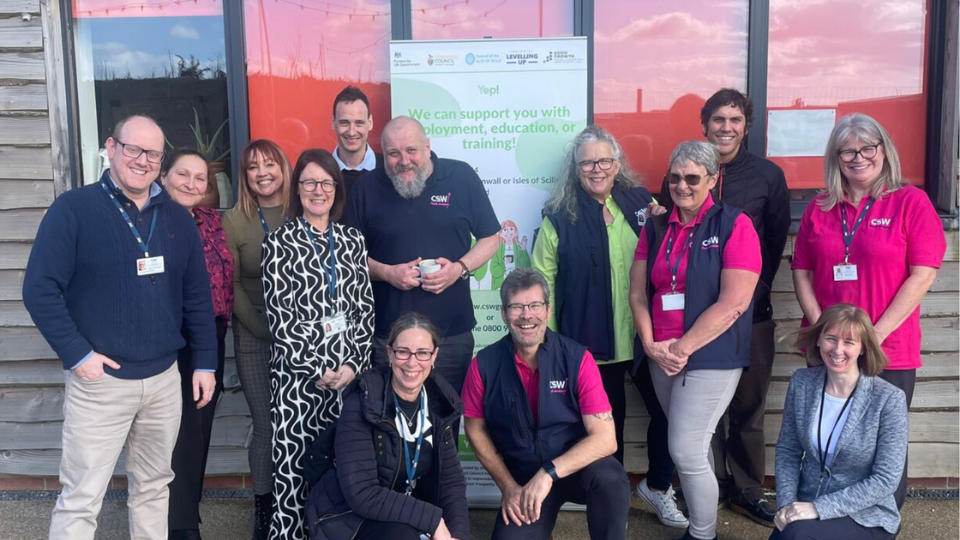The idea of ‘lifelong learning’ in the UK emerged almost a century ago, when Basil Yeaxlee wrote ‘Lifelong Education’ – a survey of British adult education in the early part of the 20th Century. Yeaxlee, a pioneer in mass adult education, advocated the role of continuing education as an aid to political and economic freedom, linking the role of education to democratic citizenship and stressing the importance of both formal and informal learning, as well as learning as a creative enjoyment. Although technology has since changed how learning is delivered and accessed, what lifelong learning means today is arguably the same – for some, it is a step towards improved work prospects, and for others, it is about personal development or fulfilment. What then is the relationship between lifelong learning and careers guidance?
The value of access to lifelong careers guidance – from school though the transition to work and continuing education and onwards through in-work progression, career change or being supported back into employment – is increasingly being recognised in the UK. A key part of such guidance is providing people with the tools for career management, enabling individuals to manage their own decisions about what their learning needs are in support of their career aspirations. Career management forms a key part of the transfer of knowledge from a careers adviser to a customer: they need to help customers to understand the value and importance of career management and of improving their skills throughout their lives and career in order to develop the skills, confidence and resilience to independently manage their careers for the long term.
As indicated above, lifelong learning can be viewed through the lens of economic value – retraining and upskilling to adapt to new requirements in the workplace or labour market – or through the lens of learning as an instrument for personal growth and active citizenship. Effective careers guidance does not need to start with an assumption that lifelong learning falls exclusively into either one of these categories. As careers practitioners observe, the starting point for the person and their journey towards economic freedom may well be in achieving success in a learning environment and developing on a personal level, whether or not this relates specifically to work or employability skills.
The skill of the adviser is il to establish where someone is on their career journey and what learning means to them. For some, learning through formal education may not have been a positive experience and a lack of basic skills or ‘skills for life’ have been barriers to progress. According to the Learning and Work Institute, nine million working age adults in England have low basic skills in literacy or numeracy, including five million who have low skills in both. Part of the work of EDT’s careers advisers in the National Careers Service is to support customers into learning, and around 30% of the adults they support on learning journeys undertake courses in basic or functional skills.
The role of adult careers guidance services (through careers advisers supported by labour market information) has been to interpret and mediate the skills in demand – most recently for example identified in the Local Skills Improvement Plans- and advise and guide individuals. For many years it is fair to say, the message from labour market analysts to careers practitioners has been to stress the importance of digital skills as an underpinning skillset for most jobs – and indeed, one of the biggest barriers to learning and to work mentioned by many careers advisers is a lack of digital skills. The growth of online learning assumes levels of both access to technology and the competences to make use of it, but 27% of the UK population is still reported to have low digital capability. Digital skills are also highly important in the very process of accessing work opportunities through the stages of job search, application and interviews (for example using video technology). As technology is continuously developing, it arguably epitomises the need for lifelong learning and for career practitioners to be aware of the changes in demand for specific skills. In practice, lifelong learning can mean many things in the world of careers guidance. It may mean identifying how and where a specific skill can be acquired (often in the form of a qualification) to match a job requirement. It may entail helping someone map out the steps to develop the skills and qualifications towards a particular career goal, or – for those distant from the labour market – supporting them in taking up informal learning to help build confidence as the first step towards looking for work. It may also mean helping customers to reflect on their life experiences and transferrable skills which can be applied to a work setting.
Perhaps the relationship between lifelong learning and careers guidance is best expressed in what one of our expert careers advisers said: “In my opinion, lifelong learning is the ‘glue’ that binds together the steps our customers need to take in order to achieve their goals.”
For the majority, adult careers guidance is not available on tap. The opportunity to provide guidance is then often time-limited, with many considerations for the adviser depending on what each person they support is looking to achieve. While there is no explicit mission to sign each person up to ‘lifelong learning’, careers advisers can be instrumental to identifying specific learning opportunities and introducing career management skills, helping to foster a relationship between careers and learning for the long term.
To find out more about our work with adults in the employability and careers space, please click here.






